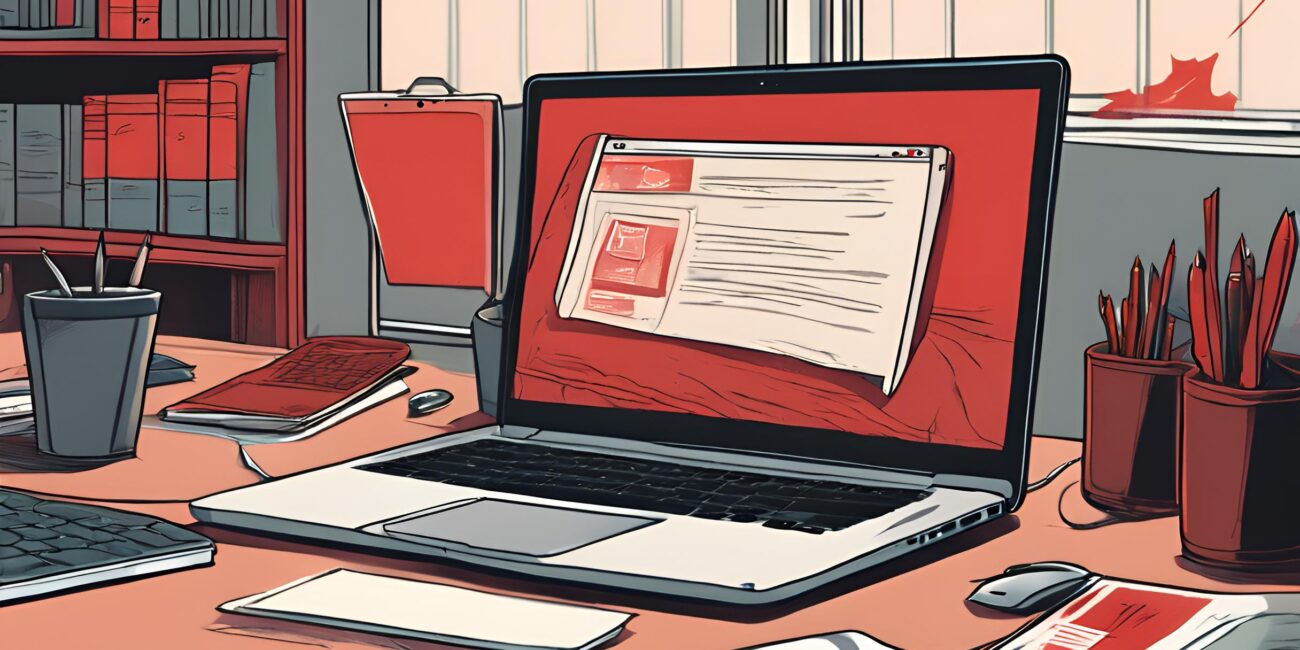First-Time Author? Here’s How to Find the Right Editor

After weeks, months, or even years, you’ve finally completed your first manuscript! That’s a huge accomplishment and you should be proud—but it’s not time to relax yet. The next leg of the marathon is just as important.
To truly call a manuscript complete, there’s another step ahead of you: editing. You might feel you could do this part yourself, or maybe you’ve already made edits, but to get it right, you need a professional. You need to know how to find an editor, and not just any editor, but a good one.
Editing is essential. If your manuscript isn’t well edited, you’re doing yourself and your work a disservice. Rather than land at the bottom of the slush pile, reach out for help. Whether you opt for traditional or self-publishing, it will be worth it.
After a bit of research, comparing, and calling, you’ll be ready to hand your manuscript over to a professional editor and save future you heaps of time and trouble. From understanding the different types of editing to assessing editor rates, it’s time to navigate the next part of your writing journey.
Table of Contents
Understand What You’re Looking for in an Editor

Searching for an editor is one thing, but finding the right editor is another. Knowing how to find a good editor can make the difference between a published novel and an overlooked Word document. So, what exactly are you looking for?
What Type of Editing Does Your Manuscript Need?
There’s no universal answer to this question. You know your writing best, so your first task is to understand the different types of editing and analyse which type(s) your work needs. This decision depends largely on where your manuscript is in its timeline. Here’s a simple rule of thumb:
- Developmental editing: If your manuscript is still in the early stages and needs a lot of love, consider approaching a developmental editor. They offer substantial help to get your story in shape, eliminating content issues like plot holes and inconsistencies.
- Copy editing: If your manuscript has already undergone a few edits, but you need a good eye to organise aspects like structure, grammar, and spelling, a copy editor is your best bet.
- Proofreading: If your manuscript has been through multiple editing rounds and you’re confident no stone has been left unturned, a proofreader should be sufficient.
If you’re still unsure what type of editing you need, reach out to an editor or two for a consultation or evaluation (it may come at a fee, but it will put you on the right track).
What’s Your Budget?
The next aspect of finding an editor is your budget. We know it can be a sore topic, but it’s an expense worth investing in. Editor rates differ based on the types of editing available and are influenced by factors like
- The amount of work required
-
- The currency in which you’re being charged
-
- Whether you’re looking at a freelance editor vs an editing agency
-
- The editor’s level of experience and quality
-
- Deadlines and turnaround times
Editors generally charge based on word count or total hours worked. Browse online and compare rates based on the editing you need between freelancers and agencies. You can also ask other authors what they’ve paid to get a realistic idea of what to expect. Once you’ve done this, consider what you can afford and set a reasonable budget to work towards.
What’s Your Timeline?
Your timeline is a significant factor when you’re looking for an editor. The amount of work needed and the types of editing required will determine how long the editing process will take. You can’t have a timeline that asks the impossible, so assess the work carefully to judge how much time you need to give your editor.
Keep in mind that a very tight deadline could increase editor rates. There may also be some back and forth with reviews, feedback, and changes – it all adds to the timeline.
So, How Do You Find an Editor?
Now that you know what to look for, where do you begin looking?
Make the Internet Your Bestie
The internet is there to help you, so make the most of it. Search keywords that suit your needs, like ‘editor’, ‘editor services’, ‘editing’, ‘copy editing’, ‘proofreading’, ‘top editors in [area]’, and so forth. Upwork, Fiverr, LinkedIn, and Freelancer are good platforms to find freelance editors.
These are handy because they show dozens of options with various experience levels and rates. Just make sure to assess the quality of their services and professionalism.
Online editor directories are another good way to find an editor. These editors are part of a professional institute, and essential factors like editor qualifications and experience are verified, which is a bonus.
Ask for Referrals
The internet is great, but old-fashioned word-of-mouth still has its advantages. By talking to other writers who have worked with an editor, referrals become much more trustworthy.
You can ask for referrals from writing communities and groups or university professors or supervisors if your manuscript is that way inclined. A social media post asking for referrals can also be useful in getting personal reviews and recommendations.
What to Look for When You Find an Editor

If you’re confident with what you need and have begun your search, there are a few important qualities and pieces of information you’ll want to see in the right editor’s bio.
Genre Experience
The right editor must have genre editing experience in your field. There’s no point approaching an editor with an academic editing portfolio, but your text is fiction. Similarly, if your manuscript is a romance novel, your editor should have at least some fiction editing experience in the genre.
On the other hand, if your manuscript is a paper for an academic journal, your editor needs a sound knowledge of academic formatting, tone, language, and referencing. Non-fiction also requires an editor who has worked with the genre before and has a good understanding of it.
Simply put, no matter what you’ve written, your editor needs to know the genre well for them to effectively improve your writing.
Available Editing Services
From the calibre of editing to the amount of work required, the right editor will have experience in the service you require.
Consider this example: you approach a book editor and need the full monty for your novel—developmental editing, proofreading, the works. The editor knows how to copy edit and proofread but has never done a developmental edit to this extent before.
Their book editing services are generally targeted at texts further along in the editing phase, but they’re willing to take on your job. They might return a flawless manuscript in terms of grammar and spelling, but what are the odds that the story will be improved?
Unless an editor knows the ins and outs of building a story and the intricacies of fiction writing techniques, the odds won’t be in your favour.
Client Testimonials and Reviews
One of the most beneficial parts of finding an editor through a directory or their own online platform is that there are usually reviews. They may have an impressive portfolio of work, but do they have a Google rating or testimonials on their website?
This will give a good indication of whether their services have been satisfactory in the past. Clients aren’t likely to leave a good review unless it was a really good experience.
Even if it’s a handful of 5-star, positive one-liners, if the clients made the effort, it says a lot about the editor and their work.
Rates and Turnaround Times
When you request a quote from an editor, it must stipulate the fees and timelines clearly. Make sure the editor knows all the project’s details upfront so they can quote you accurately, including text length and genre, type and extent of edits, and the required turnaround time.
Factor in that some extra services may become necessary during the process. For example, the editor may find the text needs some developmental editing when you had only requested copy editing or proofreading.
This can be added to the original quote or charged separately, depending on the editor’s methods.
Sample Edits
Although everything may look good on paper (or screen), the final confirmation lies in the real work. The best way to assess your prospective editor’s skills is to request a sample.
Sample edits are when an editor does a brief but comprehensive edit of a short section from your manuscript. Some editors do sample edits for free, while others charge a fee.
The advantage here is that you get to see how they will edit your work, giving you confidence in your decision.
Red Flags to Avoid: When to Not Work with an Editor

Unrealistic Low Rates
Say it with us: “The cheapest quote is not automatically the best option.” We know that budgets can be a struggle, but choosing an editor simply because they’re the cheapest doesn’t guarantee success.
While it may suit your budget, that cheap quote could indicate poor editing and unprofessional or underqualified service. In the end, you may be poorer with nothing to show for it.
Vague Editing Service Descriptions
An editor should, by nature, be good with words, so vagueness in their service descriptions is a big red flag. If they can’t be clear about what they offer, they might not be as qualified or transparent as they let on.
Don’t settle for less when it comes to clarity and quality. The last thing you want is to put your hard work in the hands of someone unwilling to work hard in return.
Poor Communication
How an editor communicates with you is a good indicator of how the entire process will go.
A situation with poor communication usually ends with the manuscript being under or poorly edited, an editor pulling out of their agreement, or just complete ghosting.
If they can’t keep in touch with you or respond to queries, you don’t want to leave your manuscript with them.
Manuscript Matchmaker: Find the Right Editor for Your Work
At last, the time has come. You’re ready to go forth and find an editor who can polish your manuscript the way it deserves.
As you get ready to find the best editor for the job, keep these points in mind: know what service you’re looking for, where to look for it, and how to verify its quality.
Don’t be afraid to ask editors for advice—that’s why it’s called a writing community.
Every manuscript needs an editor to shape and refine it, and no matter how much work your manuscript needs, there is an editor out there for you.
How to Find an Editor FAQs
Yes. Even great writers need editors, and any published author will stress the importance of a fresh set of professional eyes.
It varies depending on many factors, from text length and genre to the amount of work needed and the quality of the text. There’s no one-fee-fits-all.
As soon as your manuscript is fully formed and you’re ready to move closer to the publishing process, begin reaching out.
This depends on who you encounter during your research. Several is a good starting point, and based on the results, you can take it from there. Finding the right editor is important, so there are no limits.
Add information like your text genre, a synopsis of its topic, text length, what stage of the writing process you are at, and your timeline. Ask about their editing process, rates/quoting system, estimated turnaround time, where they feel their expertise lies, and even examples of previous work or client reviews.
A freelance editor is one individual who edits your work. Because they work for themselves, timelines and communication may be more flexible. On the other hand, an editing service consists of multiple people, and there may therefore be multiple people involved in the process.

Blue Leaf Team
The Blue Leaf Editing team has over 10 years of combined editing, publishing, and book industry experience. We’re passionate about content and storytelling, and sharing our knowledge with others.
info@blueleafediting.com